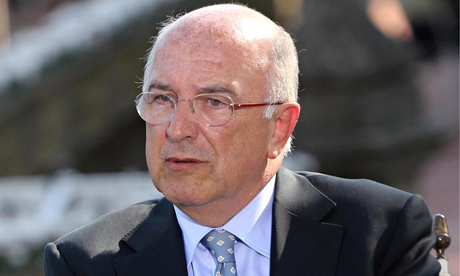
Google’s anti-trust row with the European commission could turn into a case bigger than the one that cost Microsoft more than €2.2bn (£1.7bn), the outgoing competition commissioner warned on Tuesday.
In a dramatic change of position, Joaquín Almunia, the EC’s competition commissioner, told the European parliament that unless Google altered its offer to settle complaints, it could face a “statement of objections”, the formal path towards a fine that could equate to 10% of the company’s global revenue, or about $6bn (£3.7bn).
“Microsoft was investigated [by the EC] for 16 years, which is four times as much as the Google investigation has taken, and there are more problems with Google than there were with Microsoft,” Almunia told MEPs.
His comments marked a reversal from his position before the summer, when he was poised to accept Google’s third set of proposals to settle the long-running dispute, which he opened formally in November 2010. Rivals including Microsoft, was one of the complainants, have been delighted by the change in outlook.
Google controls more than 90% of the online search market in Europe, substantially more than in the US where it was cleared by the US federal trade commission in January 2013 of favouring its own searches to the detriment of consumers. The FTC said that any such favouring helped users.
Almunia’s intention to accept Google’s proposals collapsed over the summer following outspoken opposition from French and German politicians, lobbying groups, and other commissioners.
However, he told MEPs his change of position was due to “new factual evidence” about the impact on rivals of the proposals.
He added that the EC competition group could also open an investigation into preferential positioning for Google in its Android operating system, which is the most widely used smartphone software in Europe and the rest of the world.
He said there could be another investigation of the US search firm for “the possible diversion of internet traffic towards Google services which are not search services” – a remark thought to refer to the positioning of the YouTube video site and Google+ social network in search results.
Al Verney, a spokesman for Google, said in response: “We continue to work with the European commission to resolve their concerns.”
Almunia leaves office in October, and will hand the task of completing any Google inquiries to his successor, Margrethe Vestager.
In June, Almuni said companies including European publishers, a telecoms firm, an association of picture industries and photo libraries, and an advertising platform, had complained about Google taking advantage of its dominance to promote YouTube and the Google+ network.
Last week it emerged that Robert Thomson, chief executive of News Corporation, had written to Almunia to complain about Google’s dominance of the market.

